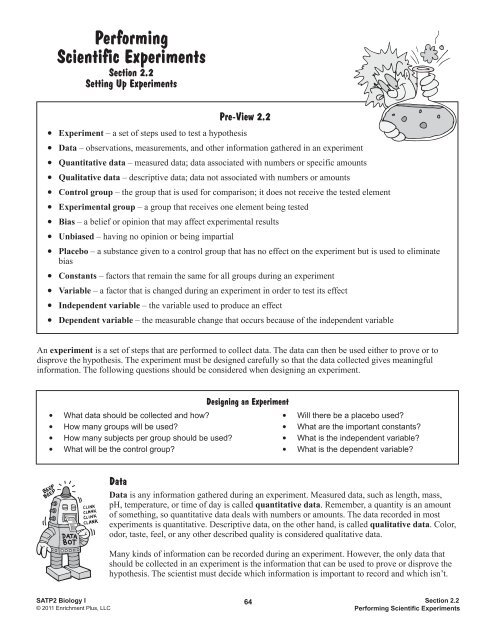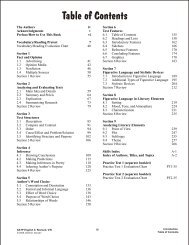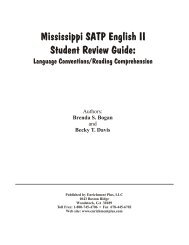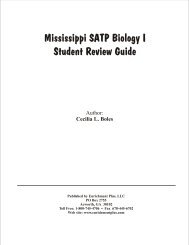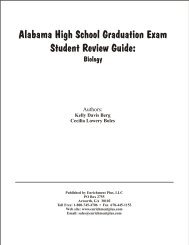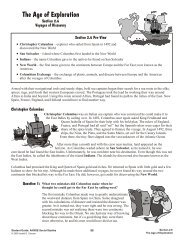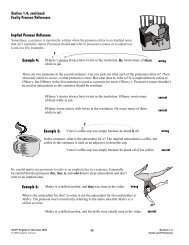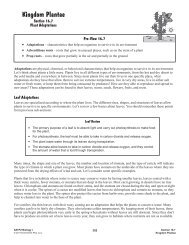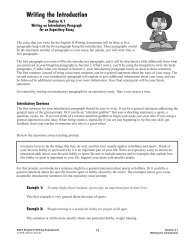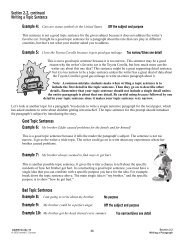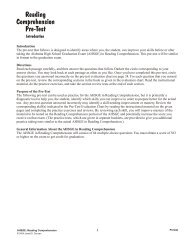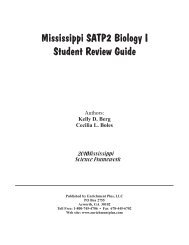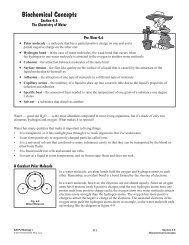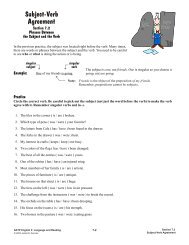Review Guide Student - Enrichment Plus
Review Guide Student - Enrichment Plus
Review Guide Student - Enrichment Plus
You also want an ePaper? Increase the reach of your titles
YUMPU automatically turns print PDFs into web optimized ePapers that Google loves.
Performing<br />
Scientific Experiments<br />
Section 2.2<br />
Setting Up Experiments<br />
Experiment – a set of steps used to test a hypothesis<br />
Data – observations, measurements, and other information gathered in an experiment<br />
Quantitative data – measured data; data associated with numbers or specific amounts<br />
Qualitative data – descriptive data; data not associated with numbers or amounts<br />
Control group – the group that is used for comparison; it does not receive the tested element<br />
Experimental group – a group that receives one element being tested<br />
Bias – a belief or opinion that may affect experimental results<br />
Unbiased – having no opinion or being impartial<br />
Pre-View 2.2<br />
Placebo – a substance given to a control group that has no effect on the experiment but is used to eliminate<br />
bias<br />
Constants – factors that remain the same for all groups during an experiment<br />
Variable – a factor that is changed during an experiment in order to test its effect<br />
Independent variable – the variable used to produce an effect<br />
Dependent variable – the measurable change that occurs because of the independent variable<br />
An experiment is a set of steps that are performed to collect data. The data can then be used either to prove or to<br />
disprove the hypothesis. The experiment must be designed carefully so that the data collected gives meaningful<br />
information. The following questions should be considered when designing an experiment.<br />
<br />
<br />
<br />
<br />
Designing an Experiment<br />
What data should be collected and how? Will there be a placebo used?<br />
How many groups will be used?<br />
What are the important constants?<br />
How many subjects per group should be used?<br />
What is the independent variable?<br />
What will be the control group?<br />
What is the dependent variable?<br />
Data<br />
Data is any information gathered during an experiment. Measured data, such as length, mass,<br />
pH, temperature, or time of day is called quantitative data. Remember, a quantity is an amount<br />
of something, so quantitative data deals with numbers or amounts. The data recorded in most<br />
experiments is quantitative. Descriptive data, on the other hand, is called qualitative data. Color,<br />
odor, taste, feel, or any other described quality is considered qualitative data.<br />
Many kinds of information can be recorded during an experiment. However, the only data that<br />
should be collected in an experiment is the information that can be used to prove or disprove the<br />
hypothesis. The scientist must decide which information is important to record and which isn’t.<br />
SATP2 Biology I<br />
© 2011 <strong>Enrichment</strong> <strong>Plus</strong>, LLC<br />
64 Section 2.2<br />
Performing Scientific Experiments


